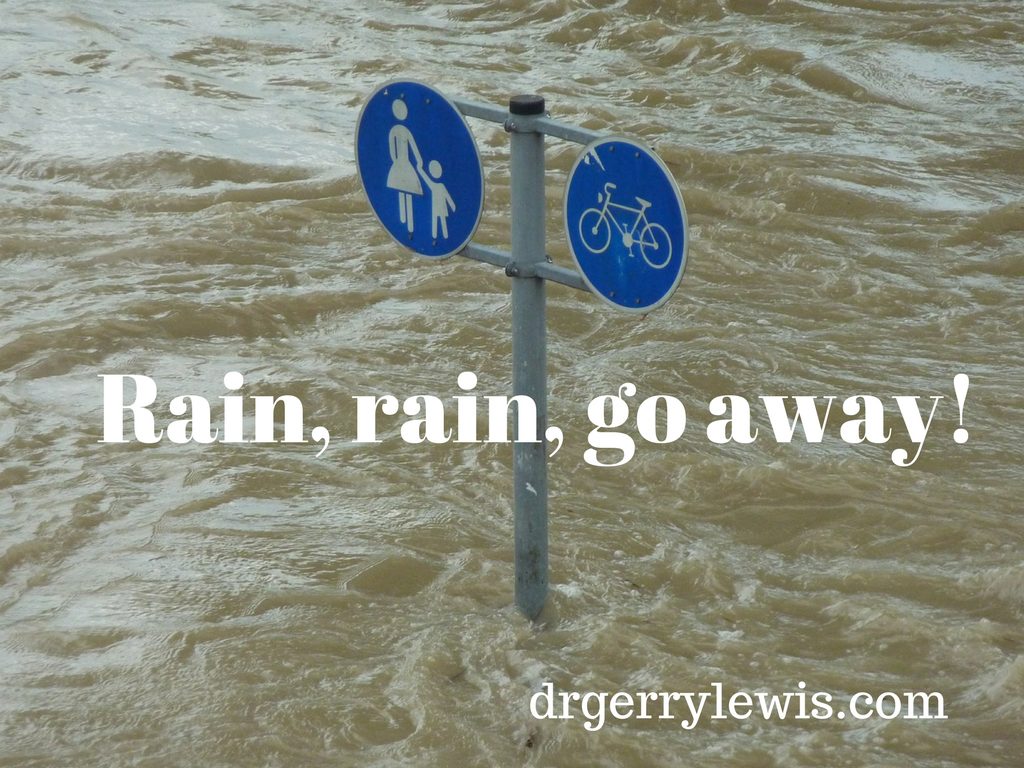“Pray for rain.” “If you are praying for rain, please stop.”
I’ve seen both of those signs.
Rain may be one of life’s most common and consistent topics of news and conversation. Maybe that’s because it is a safer conversation than politics or religion, though it can become a topic of conversation in both political and religious contexts.
The topic of rain can even become a political conversation, as people blame politicians for their response (or lack thereof) to weather-related events.
The topic of rain can also become a religious conversation, as people begin to question the purposes (and even the goodness) of God when the weather is not perfect.
Rain is mentioned in the Bible 107 times (in the New International Version), so it is appropriate to talk about God and rain. That reality doesn’t mean that we will figure it out.
The most common verse about rain that I hear quoted is when Jesus said of God, “He causes his sun to rise on the evil and the good, and sends rain on the righteous and the unrighteous.” (Matthew 5:45).
Do you understand that verse? It’s actually not about rain. Nor is it about whether a person on whom it rains is righteous or unrighteous. It is about how God’s people should respond to enemies.
Here’s the context: “But I tell you, love your enemies and pray for those who persecute you, that you may be children of your Father in heaven. He causes his sun to rise on the evil and the good, and sends rain on the righteous and the unrighteous. If you love those who love you, what reward will you get? Are not even the tax collectors doing that?” (Matthew 5:44-46)
Jesus is not giving a lesson on why weather happens. He is reminding us that weather makes no distinctions. It should never be assumed that God is using weather to reward the righteous and punish the unrighteous.
People all along the coasts of Texas and Florida need to be reminded of that right now. God is not mad at you. God is not using weather to single you out for punishment.
No, I don’t know why weather happens. I just know that it does.
Here’s what I do know: God’s people should love and pray for people.
I’m not going to suggest that weather-related prayers are not appropriate. I am going to suggest that prayers for and loving action toward people who are affected (regardless of whether we see them as “good” or not) is more important to God than prayers about the weather. Prayer may sometimes change circumstances, but more often it changes the person who prays.
It is easy to pray for more rain or for rain to stop. It is not so easy to pray that God will show us how to love those who are at risk of either drowning or drying up. That prayer calls for action on our part.
And that is the kind of prayer that acknowledges that our lives really matter to God.



